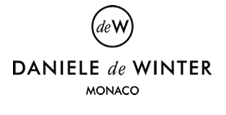THE MINERAL OF LIFE
 Therre is one little mineral that has so many life-enhancing health and beauty benefits we have completely fallen in love with it : Zinc!
Therre is one little mineral that has so many life-enhancing health and beauty benefits we have completely fallen in love with it : Zinc!
Zinc is incredibly helpful at boosting your immunity against colds but does much, much more. Check out the reasons for our latest infatuation below.
What does Zinc do :
Zinc improves so many aspects of your health it is staggering. Here are some key ones :
Skin Beauty : Ok, this is definitely not the most important benefit – but as INSIDE OUT Beauty is our mission we thought we would mention it first : zinc is a super antioxidant, essential for skin regeneration, clarity, immunity and a smooth, young complexion.
Immunity: Our immune system needs adequate zinc levels as low zinc causes a direct and rapid decline in T cell function. T cells elevate the body’s immune system when viruses, bacteria, or challenges to health arise. Older people are at greatest risk of zinc deficiency and it is lively that our need for zinc may increase with age.
Happiness and stress relief : Adequate zinc levels reduce our risk of both stress and depression by protecting against inflammation and supporting healthy hormone production which is key to a stable and happy mood. In women, estrogen is involved in serotonin production—the neurotransmitter that makes people feel good. Zinc supplementation helps optimize the balance between estrogen and progesterone in our bodies and can actually increase the density of serotonin receptors in the brain, making it that much easier for us to feel gooood.
Anti-aging : Zinc supports hormone production, which is absolutely key for staying « young ». It is involved in protein synthesis and required for muscular growth, healthy bone metabolism and proper function of red and white blood cells. Zinc is also essential for the regeneration of our eyes and brain and helps keep prevent the degeneration associated with age.
Athletic performance : Adequate zinc levels boost physical performance and energy levels. Having zinc readily available supports the production of the three most important anabolic hormones : testosterone, growth hormone and insulin-like growth factor-1 (IGF-1): Having enough zinc will give you more energy and improve your metabolism.
Fertility : Zinc deficiency lowers libido and can make both men and women infertile. Women on the birth control pill or on HRT are at great risk of deficiency as both interfere with zinc absorption, so if this applies to you, check your levels. In women, zinc is involved in the growth process of eggs and critically in regulating the production of hormones estrogen, progesterone and dopamine. If a women is zinc deficient, her egg will not mature properly and ovulation will be impeded, causing infertility.
Brain Function : Zinc plays an essential role in nerve function and helps maintain brain structure and health. It is essential for the metabolism of melatonin, which regulates sleep and dopamine production. Zinc furthermore neutralizes free radicals that cause inflammation and is very effective at detoxifying heavy metals from the brain. As inflammation, toxins and heavy metals in brain cells all increase the risk of Alzheimer’s disease, Zinc actively helps keep our brains clear and young.
Smart, Happy Children : The higher the zinc levels of pregnant women both during pregnancy and while breastfeeding, the better the cognitive and spatial development and memory of their children. Adequate zinc levels are directly linked to a reduced risk of ADHD with a promising study of 400 children with ADHD finding that supplementing with just 150 mg of zinc sulfate / day improved impaired social behavior and made the children less hyperactive. Children with a higher body mass index and lower fatty acid levels - ie with greater levels of inflammation in their bodies showed the most dramatic improvements following zinc supplementation.
Prostate Health (for the man in your life) : Male prostate tissue requires TEN times more zinc than other cells in the body to stay healthy, so assuring adequate zinc levels in the prostate can protect it from damage, inflammation, and cancer. Once prostate cells have become cancerous, their ability to accumulate zinc becomes compromised, making it all the more important for your man to take quality zinc supplements if he is at risk. The research also suggests that zinc can similarily help protect against ovarian, breast, and colorectal cancer as well.
Improved Cardiovascular Health : Zinc supports cardiovascular health. Low zinc leads to cholesterol buildup and inflammation, increasing your risk of heart disease. Studies show that poor zinc levels can amplify the negative cardiovascular effects of a high-fat, refined-carbohydrate diet, whereas an adequate zinc intake will have a protective effect and inhibit the progression of heart disease.
Protection against Diabetes : Zinc is needed for the healthy function of most hormones, including insulin. Adequate zinc plays at least three critical roles in insulin health :
1) First, zinc binds to insulin so that insulin is adequately stored in the pancreas and released when glucose enters the blood stream.
2) Second, zinc helps produce the enzymes necessary for causing insulin to bind to cells so that glucose can enter and be used as fuel. The process of insulin binding to the cell is what is referred to as “insulin sensitivity” and means that the cell is receptive to insulin. Once insulin binds to the cell, it “opens the door” so that the glucose can enter. If a cell is resistant to insulin, glucose will stay in the blood stream, cause high blood sugar and ultimately fat gain. When zinc concentration falls, there is a reduction in insulin secretion and insulin sensitivity, which if persistent, will lead to diabetes.
3) Third, zinc has a super anti-inflammatory effect by helping remove inflammatory markers such as C-reactive proteins. As inflammation of cells reduces their ability to bind insulin, zinc helps maintain healthy insulin sensitivity.
What is zinc and where do we find it ?
Zinc is a natural mineral found in the food we eat. The best sources of zinc are meat and seafood, in particular oysters and mussels -such as the freeze-dried Green Lipped Mussels in deW SKINERGIE. Dairy is also a source followed by whole grains and legumes, however because the zinc in legumes & grains is bound to phytates it is inaccessible and cannot be absorbed. This puts Vegetarians and Vegans at greatest risk of deficiency.
Zinc deficiency is staggeringly widespread in the U.S. UK and Europe, basically anywhere where the population eats large amounts of cereal and grains. Low zinc levels cause cravings for both saltier and sweeter food as well as diarrhea, infertility, slow wound healing & poor immunity, a bad memory, inability to focus, ADD symptoms, nerve dysfunction, ringing in the ears and just general tiredness and fatigue.
PS. One daily sachet of deW SKINERGIE smoothing supplements provides 500mg of freeze dried Green Lipped Mussel, an excellent natural source of zinc.
How To Test your Zinc Levels
As you can also have too much of a good thing, and taking too much zinc can actually lower your immune levels, perform a zinc test starting to pop pills (NB you can only get too much from isolated zinc sulphate pills, never from whole-food supplements such as the green lipped mussel in deW SKINERGIE ). Once you start taking zinc, your levels will rise so you should do another test eight weeks later to ensure optimal levels over the longer term.
The simplest way to test for zinc is a taste test : Get a bottle of zinc sulfate, pour about one teaspoon into a cup and sip it, holding it in the mouth. If it tastes just like water, you are very zinc deficient. If it tastes slightly metallic, you are moderately zinc deficient. If it tastes very metallic and quite disgusting, your levels are probably adequate. This test is subject to individual taste perception and it is not 100 percent valid, but it is a good place to start.
For a more accurate measure, do a blood test.
